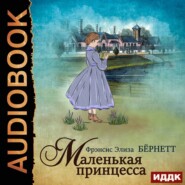По всем вопросам обращайтесь на: info@litportal.ru
(©) 2003-2024.
✖
Louisiana
Настройки чтения
Размер шрифта
Высота строк
Поля
When they spoke next it was of a different subject.
"Ef ye aint a-goin' to Europe – " the old man began.
"And I'm not, father," Louisiana put in.
"Ef ye aint, we must set to work fixin' up right away. This mornin' I was a-layin' out to myself to let it stay tell ye come back an' then hev it all ready fer ye – cheers an' tables – an' sophias – an' merrors – an' – ile paintin's. I laid out to do it slow, Louisianny, and take time, an' steddy a heap, an' to take advice from them es knows, afore I traded ary time. I 'lowed it'd be a heap better to take advice from them es knowed. Brown, es owns the Springs, I 'lowed to hev asked him, now, – he's used to furnishin' up an' knows whar to trade an' what to trade fer. The paintin's, now – I've heern it takes a heap o' experience to pick 'em, an' I aint hed no experience. I 'low I shouldn't know a good un when I seen it, Now, them picters as was in the parlor – ye know more than I do, I dessay, – now, them picters," he said, a little uncertainly, "was they to say good, or – or only about middlin'?"
She hesitated a second.
"Mother was fond of them," she broke out, in a burst of simple feeling.
Remembering how she had stood before the simpering, red-cheeked faces and hated them; how she had burned with shame before them, she was stricken with a bitter pang of remorse.
"Mother was fond of them," she said.
"Thet's so," he answered, simply. "Thet's so, she was; an' you a-bein' so soft-hearted an' tender makes it sorter go agin ye to give in as they wasn't – what she took 'em fer. But ye see, thet – though it's nat'ral – it's nat'ral – don't make 'em good or bad, Louisianny, an' Lord! it don't harm her. 'Taint what folks knows or what they don't know thet makes the good in 'em. Ianthy she warn't to say 'complished, but I don't see how she could hev ben no better than she was – nor more calculated to wear well – in the p'int o' religion. Not hevin' experience in ile paintin's aint what'd hurt her, nor make us think no less of her. It wouldn't hev hurt her when she was livin', an' Lord! she's past it now – she's past it, Ianthy is."
He talked a good deal about his plans and of the things he meant to buy. He was quite eager in his questioning of her and showed such lavishness as went to her heart.
"I want to leave ye well fixed," he said.
"Leave me?" she echoed.
He made a hurried effort to soften the words.
"I'd oughtn't to said it," he said. "It was kinder keerless. Thet thar – it's a long way off – mebbe – an' I'd oughtn't to hev said it. It's a way old folks hev – but it's a bad way. Things git to seem sorter near to 'em – an' ordinary."
The whole day had been to Louisiana a slow approach to a climax. Sometimes when her father talked she could scarcely bear to look at his face as the firelight shone on it.
So, when she had bidden him good-night at last and walked to the door leaving him standing upon the hearth watching her as she moved away, she turned round suddenly and faced him again, with her hand upon the latch.
"Father," she cried, "I want to tell you – I want to tell you – "
"What?" he said. "What, Louisianny?"
She put her hand to her side and leaned against the door – a slender, piteous figure.
"Don't look at me kindly," she said. "I don't deserve it. I deserve nothing. I have been ashamed – "
He stopped her, putting up his shaking hand and turning pale.
"Don't say nothin' as ye'll be sorry fer when ye feel better, Louisianny," he said. "Don't git carried away by yer feelin's into sayin' nothin' es is hard on yerself. Don't ye do it, Louisianny. Thar aint no need fer it, honey. Yer kinder wrought up, now, an' ye cayn't do yerself jestice."
But she would not be restrained.
"I must tell you," she said. "It has been on my heart too long. I ought never to have gone away. Everybody was different from us – and had new ways. I think they laughed at me, and it made me bad. I began to ponder over things until at last I hated myself and everything, and was ashamed that I had been content. When I told you I wanted to play a joke on the people who came here, it was not true. I wanted them to go away without knowing that this was my home. It was only a queer place, to be laughed at, to them, and I was ashamed of it, and bitter and angry. When they went into the parlor they laughed at it and at the pictures, and everything in it, and I stood by with my cheeks burning. When I saw a strange woman in the kitchen it flashed into my mind that I had no need to tell them that all these things that they laughed at had been round me all my life. They were not sneering at them – it was worse than that – they were only interested and amused and curious, and were not afraid to let me see. The – gentleman had been led by his sister to think I came from some city. He thought I was – was pretty and educated, – his equal, and I knew how amazed he would be and how he would say he could not believe that I had lived here, and wonder at me and talk me over. And I could not bear it. I only wanted him to go away without knowing, and never, never see me again!"
Remembering the pain and fever and humiliation of the past, and of that dreadful day above all, she burst into sobbing.
"You did not think I was that bad, did you?" she said. "But I was! I was!"
"Louisianny," he said, huskily, "come yere. Thar aint no need fer ye to blame yerself thataway. Yer kinder wrought up."
"Don't be kind to me!" she said. "Don't! I want to tell you all – every word! I was so bad and proud and angry that I meant to carry it out to the end, and tried to – only I was not quite bad enough for one thing, father – I was not bad enough to be ashamed of you, or to bear to sit by and see them cast a slight upon you. They didn't mean it for a slight – it was only their clever way of looking at things – but I loved you. You were all I had left, and I knew you were better than they were a thousand times! Did they think I would give your warm, good heart – your kind, faithful heart – for all they had learned, or for all they could ever learn? It killed me to see and hear them! And it seemed as if I was on fire. And I told them the truth – that you were my father and that I loved you and was proud of you – that I might be ashamed of myself and all the rest, but not of you – never of you – for I wasn't worthy to kiss your feet!"
For one moment her father watched her, his lips parted and trembling. It seemed as if he meant to try to speak, but could not. Then his eyes fell with an humble, bewildered, questioning glance upon his feet, encased in their large, substantial brogans – the feet she had said she was not worthy to kiss. What he saw in them to touch him so it would be hard to tell – for he broke down utterly, put out his hand, groping to feel for his chair, fell into it with head bowed on his arm, and burst into sobbing too.
She left her self-imposed exile in an instant, ran to him, and knelt down to lean against him.
"Oh!" she cried, "have I broken your heart? Have I broken your heart? Will God ever forgive me? I don't ask you to forgive me, father, for I don't deserve it."
At first he could not speak, but he put his arm round her and drew her head up to his breast – and, with all the love and tenderness he had lavished upon her all her life, she had never known such love and tenderness as he expressed in this one movement.
"Louisianny," he said, brokenly, when he had found his voice, "it's you as should be a-forgivin' me."
"I!" she exclaimed.
He held her in his trembling arm so close that she felt his heart quivering.
"To think," he almost whispered, "as I should not hev ben doin' ye jestice! To think as I didn't know ye well enough to do ye jestice! To think yer own father, thet's knowed ye all yer life, could hev give in to its bein' likely as ye wasn't – what he'd allers thought, an' what yer mother 'd thought, an' what ye was, honey."
"I don't – " she began falteringly.
"It's me as oughter be a-standin' agin the door," he said. "It's me! I knowed every word of the first part of what ye've told me, Louisianny. I've been so sot on ye thet I've got into a kinder noticin' way with ye, an' I guessed it out. I seen it in yer face when ye stood thar tryin' to laugh on the porch while them people was a-waitin'. 'Twa'n't no nat'ral gal's laugh ye laughed, and when ye thought I wasn't a-noticin' I was a-noticin' an' a-thinkin' all the time. But I seen more than was thar, honey, an' I didn't do ye jestice – an' I've ben punished fer it. It come agin me like a slungshot. I ses to myself, 'She's ashamed o' me! It's me she's ashamed of – an' she wants to pass me off fer a stranger!'"
The girl drew off from him a little and looked up into his face wonderingly.
"You thought that!" she said. "And never told me – and humored me, and – "
"I'd oughter knowed ye better," he said; "but I've suffered fer it, Louisianny. I ses to myself, 'All the years thet we've ben sot on each other an' nussed each other through our little sick spells, an' keered fer each other, lies gone fer nothin'. She wants to pass me off fer a stranger.' Not that I blamed ye, honey. Lord! I knowed the difference betwixt us! I'd knowed it long afore you did. But somehow it warn't eggsakly what I looked fer an' it was kinder hard on me right at the start. An' then the folks went away an' ye didn't go with 'em, an' thar was somethin' workin' on ye as I knowed ye wasn't ready to tell me about. An' I sot an' steddied it over an' watched ye, an' I prayed some, an' I laid wake nights a-steddyin'. An' I made up my mind thet es I'd ben the cause o' trouble to ye I'd oughter try an' sorter balance the thing. I allers 'lowed parents hed a duty to their child'en. An' I ses, 'Thar's some things thet kin be altered an' some thet cayn't. Let's alter them es kin!'"
She remembered the words well, and now she saw clearly the dreadful pain they had expressed; they cut her to her soul.
"Oh! father," she cried. "How could you?"
"I'd oughter knowed ye better, Louisianny," he repeated. "But I didn't. I ses, 'What money an' steddyin' an' watchin'll do fer her to make up, shell be done. I'll try to make up fer the wrong I've did her onwillin'ly – onwillin'ly.' An' I went to the Springs an' I watched an' steddied thar, an' I come home an' I watched an' steddied thar – an' I hed the house fixed, an' I laid out to let ye go to Europe – though what I'd heern o' the habits o' the people, an' the brigands an' sich, went powerful agin me makin' up my mind easy. An' I never lost sight nary minnit o' what I'd laid out fer to do – but I wasn't doin' ye jestice an' didn't suffer no more than I'd oughter. An' when ye stood up thar agen the door, honey, with yer tears a-streamin' an' yer eyes a-shinin', an' told me what ye'd felt an' what ye'd said about – wa'l," (delicately) "about thet thar as ye thought ye wasn't worthy to do, it set my blood a-tremblin' in my veins – an' my heart a-shakin' in my side, an' me a-goin' all over – an' I was struck all of a heap, an' knowed thet the Lord hed ben better to me than I thought, an' – an' even when I was fondest on ye, an' proudest on ye, I hadn't done ye no sort o' jestice in the world – an' never could!"
There was no danger of their misunderstanding each other again. When they were calmer they talked their trouble over simply and confidingly, holding nothing back.
"When ye told me, Louisianny," said her father, "that ye wanted nothin' but me, it kinder went agin me more than all the rest, fer I thinks, ses I to myself, 'It aint true, an' she must be a-gettin' sorter hardened to it, or she'd never said it.' I seemed like it was kinder onnecessary. Lord! the onjestice I was a-doin' ye!"
They bade each other good-night again, at last.
"Fer ye're a-lookin' pale," he said. "An' I've been kinder out o' sorts myself these last two or three weeks. My dyspepsy's bin back on me agin an' thet thar pain in my side's bin a-workin' on me. We must take keer o' ourselves, bein' es thar's on'y us two, an' we're so sot on each other."
He went to the door with her and said his last words to her there.
"I'm glad it come to-night," he said, in a grateful tone. "Lord! how glad I am it come to-night! S'posin' somethin' hed happened to ary one of us an' the other hed ben left not a-knowin' how it was. I'm glad it didn't last no longer, Louisianny."

















